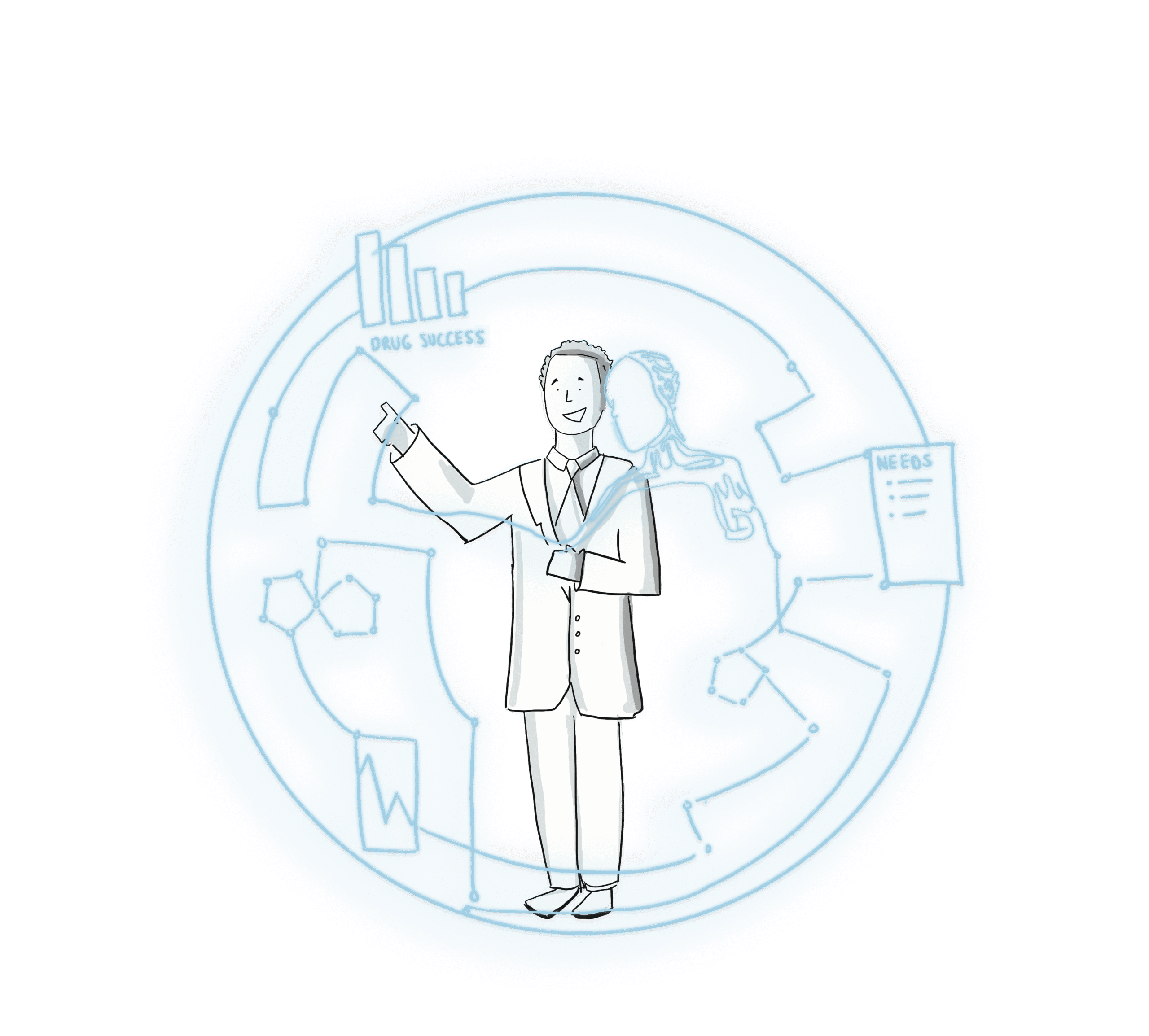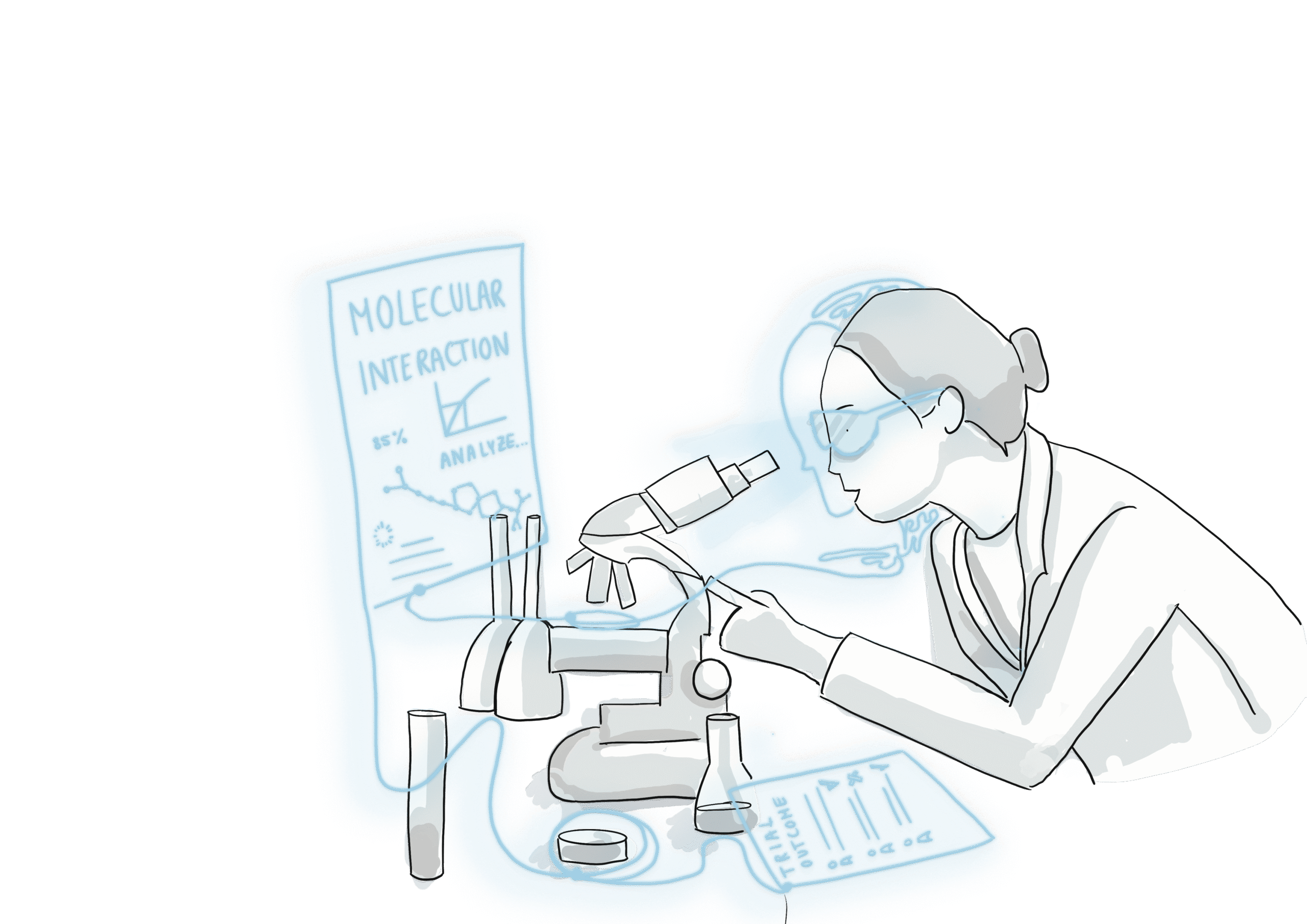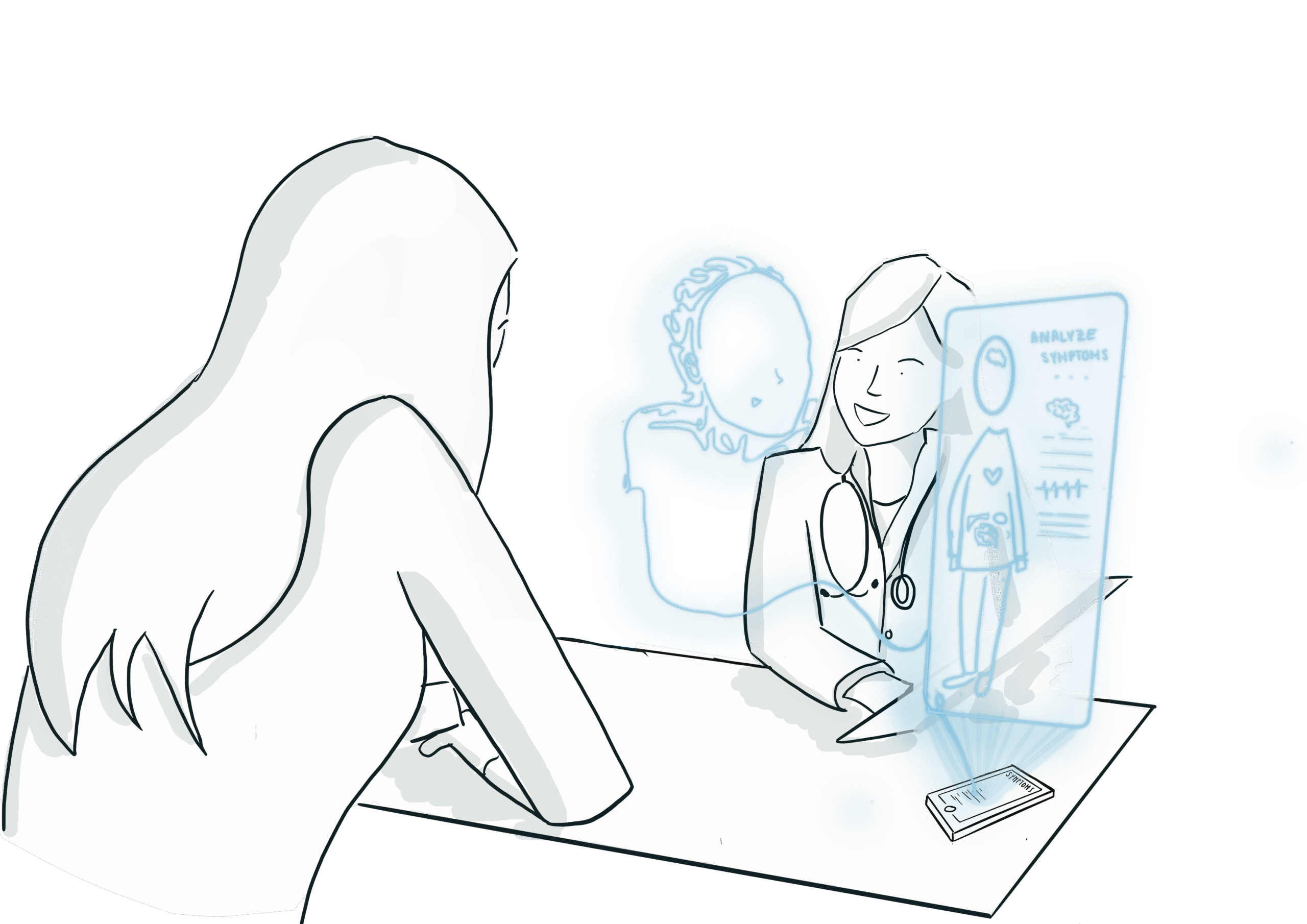From AI “wrappers” to “cognitive architectures” in pharma
In the early days of Generative AI, many companies took foundational models like GPT-3, wrapped them in a simple web interface, and called it a product. Today, that’s no longer enough. Modern AI applications increasingly require sophisticated cognitive architectures, including:
- Multiple foundation models with routing mechanisms
- Vector and/or graph databases for retrieval-augmented generation (RAG)
- Guardrails for ethics, compliance and safety
- Application logic that aligns with real-world workflows
How are these things coming together with real-world use cases in pharma, which demands the highest compliance standards, traceability, and accuracy? These architectures are, in fact, essential across the entire pharma value chain. From clinical trial management, and patient engagement, to drug safety monitoring–all involve complex processes where AI must be transparent, reliable, and integrated seamlessly.

Why Artificial Intelligence in pharma requires more than a plug-and-play model
In the real world, pharma life science companies face unique challenges that make off-the-shelf AI solutions risky or insufficient:
Stringent regulations
Compliance with bodies like the EMA or FDA requires detailed auditing, validated software, and well-documented data flows. AI “black boxes” aren’t acceptable when patient safety is on the line.
Complex workflows
From drug discovery to medical affairs and patient support, pharma processes involve multiple stakeholders, intricate data pipelines, and life-or-death decision points. AI applications must be carefully designed to integrate at every step.
Trust and transparency
Misdiagnoses or misinformation could harm patients and tarnish reputations. Clear guardrails, escalation paths, and human-in-the-loop checkpoints are essential for maintaining trust across the organization.
AI in pharma is far beyond technology—it is about creating a fully realised, high-trust experience where advanced models operate responsibly, deliver actionable insights, and reduce human error.
How is AI used in pharma? Real-world use cases of AI in pharma
Pharma companies are now moving well beyond early proof‐of‐concept AI demos into fully integrated, sophisticated cognitive architectures that transform drug development and patient care.
Here are some recent examples:
1. AI-Powered Clinical trials
Clear guidance towards AI Regulatory Alignment
AI’s tremendous benefits with regard to clinical trials are becoming industry standard practise, but uncertainty in meeting regulatory standards can create delays and risk. The FDA’s recent draft guidance provides a structured framework for AI integration, ensuring safety and transparency, enhanced compliance and expedited regulatory approvals.
LLM-Based Patient Matching & Data Summarization
Innovations like TrialGPT use large language models (LLMs) to assess eligibility criteria for clinical trials with near expert-level accuracy, reducing screening time by over 40%. These systems also summarise vast amounts of trial data to spot anomalies and minimise errors.

2. Automated Patient Enrollment and Compliance
Predictive Analytics for Enrollment
Many pharma studies fail their recruitment targets due to overestimations of patient availability. Advanced AI platforms—employed by companies like Roche and integrated into solutions from Medidata and IQVIA—automate patient enrollment by analysing electronic health record (EHR) data, flagging potential compliance issues, and generating real-time status reports. This automation not only speeds up recruitment but also ensures adherence to strict regulatory standards.
3. AI-Driven Medical Affairs Support
Curating Scientific Literature & Compliant Content
Medical affairs teams are leveraging generative AI to curate and synthesise the latest scientific literature rapidly. Companies like Oxford PharmaGenesis deploy AI-driven platforms that generate compliant, up-to-date materials for healthcare providers—making sure communications are both scientifically rigorous and regulatory-compliant.
Continuous evolution of AI in pharma
AI in pharma is evolving rapidly, with new models, techniques, and best practices emerging almost every month. These advancements make clinical trials faster, ensure regulatory compliance, enhance medical affairs, and improve patient engagement. All while delivering data-driven insights that propel the industry forward.
If pharma companies aim to stay ahead of the innovation curve, a design-led, AI-enabled approach will be critical.
As these technologies advance, we anticipate:
More sophisticated “co-pilot” to “auto-pilot” transitions
Where human oversight gradually gives way to fully automated tasks.
Domain-specific cognitive architectures
That can reason about and continuously learn from extensive, real-world pharma data.
Holistic ecosystems of AI agents
That work together to optimise operations end-to-end (e.g., AI scribes, compliance officers, marketing assistants).
By choosing a partner who merges strategic design expertise with end-to-end AI engineering, you position your organisation to innovate responsibly, execute consistently, and adapt quickly as the landscape shifts.

Designing the future of AI in pharma
Generative AI holds immense promise for pharma life sciences, but capturing that promise requires more than a simple interface over a powerful model. It calls for intelligent, compliant, user-centric design—backed by enterprise-grade engineering and deep industry expertise.
We’re here to help you navigate this new frontier. By bridging strategic design and full-stack AI development, we empower pharma organisations to move beyond “wrappers” and into the realm of true cognitive architectures. Unlocking new levels of efficiency, cost savings, and patient impact.
Koos is an independent strategic design agency with deep experience in healthcare & pharma.
We partner with SevenLab, the end-to-end AI application development firm—a full-stack, scalable software leader (and official NVIDIA & Microsoft partner). Together, with a track record of unlocking the power of AI for businesses, we’re enabling a next-generation approach to AI in pharma.
Ready to transform how your pharma teams work and innovate with AI?
We can co-create solutions tailored to your unique needs and drive tangible, long-lasting value for your organisation. With our proven approach, we typically move from concept to working AI prototype with real data in 1 working week.
Interested in learning more? Contact us for a consultation or demo. Let’s design the future of pharma—together.

Bill Cole
With 25+ years of strategic design experience, Bill has collaborated with many of the top pharma industry leaders to define and implement cutting-edge digital health and AI solutions tailored for compliance, efficiency and better patient outcomes.
Common questions around AI in pharma
AI speeds up drug discovery, improves predictive analytics for clinical outcomes, optimises clinical trials through precision patient targeting, and streamlines regulatory compliance processes. Partnering with a specialised AI design consultancy like Koos ensures these align ethically, culturally, and operationally within pharmaceutical organisations, maximising ROI and competitive differentiation.
Ethical AI use requires transparent governance, robust data privacy frameworks, proactive bias monitoring, and continuous human oversight. At Koos, we embed these principles deeply into AI design processes, ensuring rigorous compliance, trust-building with stakeholders, and ongoing ethical accountability.
The days when AI meant needing armies of data scientists and engineers are over. Core skills now include data literacy, ethical awareness, and adaptability. Koos supports teams with tailored training and practical scenarios to build AI-ready cultures.
The biggest risk, besides patient privacy and accuracy, biased recruitment, data misuse, and misinterpreted outputs, is falling behind in AI adoption. Koos’ design and data-driven approach ensures AI provides trustworthy outcomes and maintains competitive relevance.


